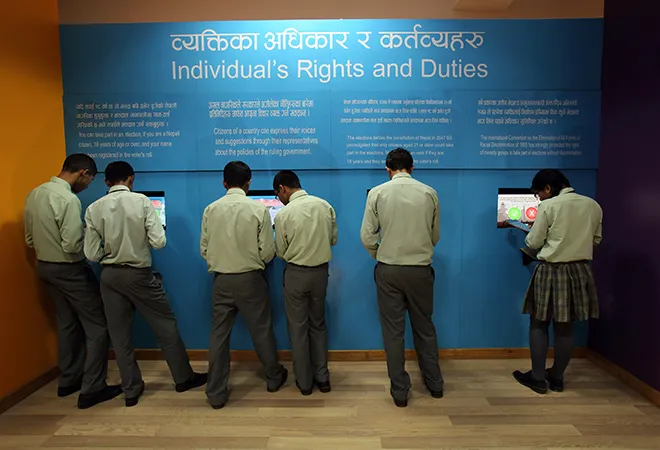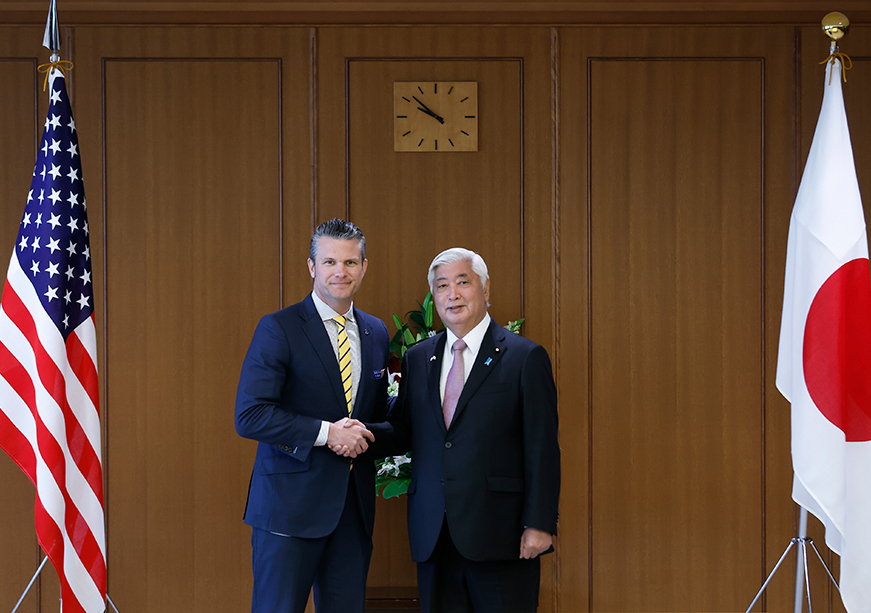
The Sher Bahadur Deuba government in Kathmandu recently scrapped the deal signed with the Chinese company China Gezhouba Group Corporation (CGGC) for the construction of $2.5-billion Budhi Gandaki Hydropower Project in Nepal. The government took this decision in accordance with the instructions given by the parliamentary committee in September 2017. The agreement for the Budhi Gandaki project was signed in May 2017, just a month after Nepal joined Chinese President Xi Jinping’s Belt and Road Initiative (BRI). In view of the fact that the Gandaki project was on the list of BRI projects, the scrapping of the deal obviously appears to be crucial.
The 1,200-megawatt Budhi Gandaki project in Gorkha and Dhading districts was not only the largest venture in hydro-power sector in the country but it was also a pride project for the country. This project alone could have resolved the perennial power crisis in Nepal.
Most people in Nepal support the government’s decision to cancel the Budhi Gandaki project deal as there was lack of transparency in the deal. Kamal Thapa, Nepal’s Deputy Prime Minister and Energy Minister, categorically mentioned that the project had been signed “illegally and haphazardly.”
The revoking of the Budhi Gandaki agreement also heralds a shift in Nepal’s bilateral relations with China. This could affect the implementation of a 10-point deal made between Nepal and China in early 2016, at a time the Communist Party of Nepal–Unified Marxist-Leninist (CPN-UML) leader K.P. Sharma Oli was heading the government in Kathmandu.
The agreement for the construction of this biggest reservoir Gandaki project was signed in haste by Maoist leader Pushpa Kamal Dahal’s government without following any competitive bidding process. Therefore, many of the patriotic forces in Nepal started opposing the deal. Baburam Bhattarai, former Prime Minister and the leader of the Naya Shakti Party is the one who opposed this deal with China since the beginning. He has welcomed the move and wants the government to take action against all those who were party to this deal.
The agreement for the construction of this biggest reservoir Gandaki project was signed in haste by Maoist leader Pushpa Kamal Dahal’s government without following any competitive bidding process.
However, the CPN-UML chairman, K.P. Sharma Oli, as expected criticised the act of revoking of the agreement. He said that this decision was made on a whim and it was a ploy to raise money for poll expenses. Echoing the same sentiment, Maoist Centre chairman Pushpa Kamal Dahal said that it was a blunder on the part of the ruling Nepali Congress-led government to scrap the agreement with the Chinese company.
The decision on the part of the Nepal government to scrap Budhi Gandaki deal could embarrass the Chinese government as it is in the chain with similar events taking place in other parts of South and Southeast Asia.
The latest was Pakistan, China’s evergreen friend, deciding to cancel a $14 billion infrastructure agreement with the Communist neighbour because it could not accept the hyper strict conditions, according to local media. The exclusion of the Diamer-Bhasha dam from the China-Pakistan Economic Corridor (CPEC) framework, a key element to Beijing’s Belt and Road Initiative, was because China’s hyper strict conditions for funding the project were “not doable and against our interests,” according to Water and Power Development Authority chairman Muzammil Hussain. The harsh conditions included China taking ownership of the project, the operation and maintenance costs and pledging to build another operational dam. Now, Pakistan itself will fund the project, which will generate 4,500 megawatt of hydropower.
The exclusion of the Diamer-Bhasha dam from the China-Pakistan Economic Corridor (CPEC) framework, a key element to Beijing’s Belt and Road Initiative, was because China’s hyper strict conditions for funding the project were “not doable and against our interests.”
Sometime back, the Myanmar government had also decided to cancel the $3.6 billion Myitsone dam, contracted by the President Thein Sein in 2011. Sri Lanka, too, is heavily obsessed with the Hambantota port project that put the country in debt trap amounting to $8 billion.
Significantly, when the government and the people Sri Lanka tried to resist Hambantota port project for its failure to address the aspirations of the people, China managed to get 70 percent of its stake in the project. Such activities not only help China to hold greater control over the management of the port, but in fact it is also intended to interfere in project activities. India is unhappy with China for such activities as it tried to put smaller countries like Nepal and Sri Lanka in debt trap in order to influence their foreign policy.
In a marked development, however, Beijing seems to have lost its position of a major financial player in Nepal after India together with Japan and the US exhibited greater zeal to support development projects in this country. India and the US intend to extend generous grants to Nepal for regional connectivity under its Indo-Pacific outreach.
Read | Need for fresh initiative to improve connectivity in South Asia
Also, Nepal has been selected by the US as most high profile destination in regional connectivity. Accordingly, the Millennium Challenge Corporation has approved $500 million compacts with Nepal, which is the first of its kind in South Asia. Japan, too, has been working on a sustainable transparent alternative arrangement to develop local projects in Nepal, apart from supporting regional infrastructure.
Experts believe that China could lose its clout in Nepal further if it does not improve its image in the country. Earlier, the country had the reputation of completing the projects in time. But for quite some time, the Chinese contractors have utterly failed to maintain such image. One such example is Chakrapath (circular road) of Kathmandu, which the Chinese have not been able to complete even after years. As such, the dust on the roads has been creating health hazards to the people.
China could lose its clout in Nepal further if it does not improve its image in the country.
Similarly, the Chinese company, China Three Gorges International Corporation, signed a deal with Nepal Electricity Authority in 2012 for the construction of high profile 750-megawatt West Seti Hydropower Project at the cost of $1.81 billion. As per the deal, the construction work of the project should have begun in 2014, but so far nothing has been done. Consequently, Nepal has been suffering for the delay made by the Chinese company.
The present government under Sher Bahadur Deuba needs to be appreciated for the way it has taken the bold steps to scrap the Budhi Gandaki project deal. Time has come when the government could also get details of other projects where Chinese or other foreign companies have delayed execution work for their vested interest. Those companies which do not work in time needs to be fired and replaced by those who could deliver in time. In this context, even those elements who have tried to work against the national interest by signing unfair deals in projects must be exposed.
References
Post Report, “Budhi Gandaki hydro project plunges into uncertainty,” The Kathmandu Post, 14 November 2017.
Ibid.
Ratopati Sambaddata, “Budhi Gandakiko Samjhauta Kharejpachhi Baburamko Pratikriya: Aba Aniyamitta Garneharulai Karbahi Garaun.” (Nepali), Ratopati, Kartik 28, 2074.
Post Report, “NC scrapped Budhigandaki project to raise money for poll expenses: Oli,” The Kathamndu Post, 14 November 2017.
Post Report, “Oli, Dahal accuse govt of working ‘on a whim,’ ” The Kathmandu Post, November 16, 2017. Also, read Paudel, Ramesh Kuma, “Dahal raps govt for revoking decision to award Budhi Gandakito Chinese company,” My Republica, 16 November 2017.
Bagchi, Indrani and Dasgupta, Saibal, “Nepal scraps hydro project with Chinese company: Indian company to get it?,” The Times of India, November 15, 2017, in the US as one -company-indian-co-to-get-it/articleshow/61650423.cms?from=mdr
Moramudali, Umesh, “Sri Lanka’s Debt and China’s Money,” The Diplomat, 16 August 2017.
Bagchi, no. vi.
Acharya, Pushpa Raj, “Three Gorges, NEA, seal deal to form joint venture,” The Himalayan Times, 17 November 2017.
The views expressed above belong to the author(s). ORF research and analyses now available on Telegram! Click here to access our curated content — blogs, longforms and interviews.




 PREV
PREV


